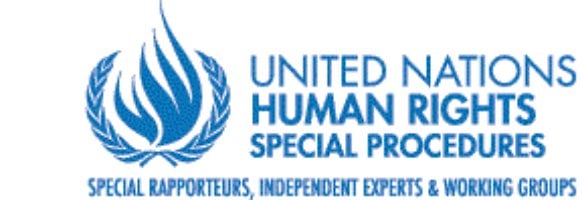US must remove sanctions and allow Syria to rebuild – UN expert
GENEVA (29 December 2020) – UN human rights expert Alena Douhan today called on the United States to remove unilateral sanctions which may inhibit rebuilding of Syria’s civilian infrastructure destroyed by the conflict.
“The sanctions violate the human rights of the Syrian people, whose country has been destroyed by almost 10 years of ongoing conflict,” said Douhan, UN special rapporteur on the negative impact of the unilateral coercive measures on the enjoyment of human rights.
“The conflict and violence have already had a dire impact on the ability of the Syrian people to realise their fundamental rights, having extensively damaged houses, medical units, schools, and other facilities,” she said.
The broad sweep of the U.S. sanctions law that went into effect in June could target any foreigner helping in reconstruction of the devastated country, and even employees of foreign companies and humanitarian operators helping rebuild Syria.
The Caesar Syria Civilian Protection Act, also known as the Caesar Act, contains the most wide-ranging U.S. sanctions ever applied against Syria.
“I am concerned that sanctions imposed under the Caesar Act may exacerbate the already dire humanitarian situation in Syria, especially in the course of COVID-19 pandemic, and put the Syrian people at even greater risk of human rights violations,” Douhan said.
“When it announced the first sanctions under the Caesar Act in June 2020, the United States said it did not intend for them to harm the Syrian population,” she said. “Yet enforcement of the Act may worsen the existing humanitarian crisis, depriving the Syrian people of the chance to rebuild their basic infrastructure.”
The Caesar Act raises serious concerns under international law because of its unfettered emergency powers of the Executive and extraterritorial reach, she said. It also results in the high risk of over–compliance.
“What particularly alarms me is the way the Caesar Act runs roughshod over human rights, including the Syrian people’s rights to housing, health, and an adequate standard of living and development. The U.S. government must not put obstacles in the way of rebuilding of hospitals because lack of medical care threatens the entire population’s very right to life.”
Since the economy is largely destroyed, Syria needs to be able to access necessary humanitarian aid and rebuild essential infrastructure in the country, while relying on foreign help. The fact that the U.S. Treasury has designated the Syrian Central Bank as suspected of money laundering clearly creates unnecessary hurdles in processing Syrian foreign aid and handling humanitarian imports.
The Syrian people’s right to adequate housing should be respected and their access to essential services guaranteed, she said.
“Impeding access to supplies needed to repair infrastructure damaged by the conflict will have a negative impact on human rights of the Syrian people and may preserve the trauma of the decade-long conflict,” Douhan said. Ensuring that the import of necessary humanitarian aid and construction materials is not inhibited could facilitate the return of displaced people as infrastructure is repaired.
If people are forced to live in degrading and inhumane circumstances because rebuilding is prevented, this could affect their physical and mental integrity, and may under some circumstances amount to cruel, inhuman or degrading treatment.
***
Ms Alena Douhan, (Belarus) was appointed as Special Rapporteur on the negative impact of the unilateral coercive measures on the enjoyment of human rights by the Human Rights Council in March 2020. Ms. Douhan has extensive experience in the fields of international law and human rights as, a Professor of international law at the Belarusian State University (Minsk), a visiting Professor at the Institute for International Law of Peace and Armed conflict, (Bochum, Germany) and the Director of the Peace Research Centre (Minsk). She received her PhD at the Belarusian State University in 2005 and obtained Dr. hab. in International Law and European Law in 2015 (Belarus). Ms. Douhan’s academic and research interests are in the fields of international law, sanctions and human rights law, international security law, law of international organizations, international dispute settlement, and international environmental law.
Special Rapporteurs are part of what is known as the Special Procedures of the Human Rights Council. Special Procedures, the largest body of independent experts in the UN Human Rights system, is the general name of the Council’s independent fact-finding and monitoring mechanisms that address either specific country situations or thematic issues in all parts of the world. Special Procedures’ experts work on a voluntary basis; they are not UN staff and do not receive a salary for their work. They are independent from any government or organization and serve in their individual capacity.
Concerned about the world we live in?
Then STAND UP for someone’s rights today.
#Standup4humanrights
and visit the web page at http://www.standup4humanrights.org

